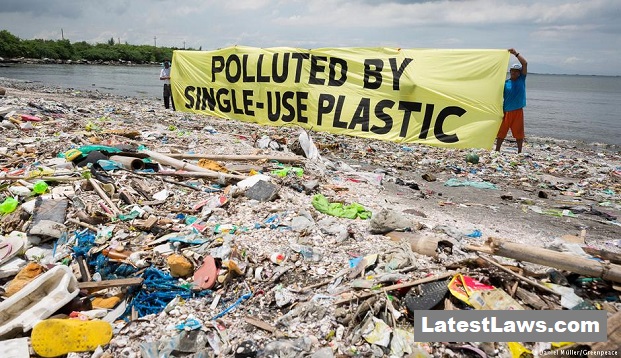June 5, 2018:
"World also need to reduce consumption of single-use or disposable plastic," he said.
Plastic has become the workhorse of the modern economy and provides significant developmental benefits but the method of its current use has many drawbacks, International Labour Organization (ILO) Director General Guy Ryder has said.
In a statement, released before World Environment Day, he said that: "More than 32 per cent of plastic packaging escapes collection systems. Most of it ends up in landfills, dumps or simply in the environment -- in cities, in the oceans or farmlands", Xinhua reported
The ILO Chief said on Monday that the challenge is to transform the "make-use-dispose" plastics' economy into a circular economy, based on its recycling.
Recycling will not only reduce the environmental damage that plastic pollution is causing but will also open new opportunities for decent work.
The ILO's ''World Employment and Social Outlook: Greening with Jobs 2018'' report has suggested that a sustained 5 per cent annual increase in recycling rates for plastics, glass, wood pulp, metals, and minerals can generate around 6 million additional jobs across the world.
Currently the waste management and recycling sector already employs over 500,000 people in Brazil and about the same number of workers in Bangladesh with the majority women, said the ILO.
However, the ILO Chief said the "sad reality" is that the handling of plastic waste, as well as e-waste and other fast-growing solid waste streams, remains largely part of the informal economy in many countries.
ILO Chief Ryder said that,"Workers face serious decent work deficits, such as work-related hazards, discrimination, stigmatisation, violence and harassment, low earnings and long working hours."
These workers are often are not legally registered and are not protected by labour laws, with no access to social protection benefits.
World Employment Social Outlook Report, 2018 by ILO by Latest Laws Team on Scribd
Picture Source :


























